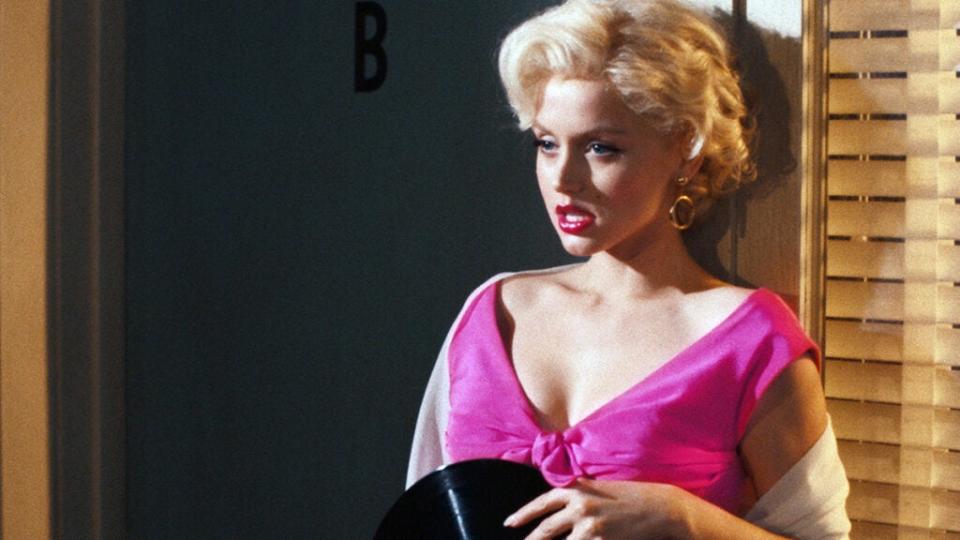Is It Time to Retire the NC-17?
After Mubi picked up his indie feature “Passages” at Sundance, director Ira Sachs was giddy: “I feel the future is full of possibilities,” he said at the time.
Now, though, he feels like some of those possibilities are closing off.
The film, assigned an NC-17 rating for its frank sexual content, has only made it to a few dozen theaters nationwide. So far, the story of a gay couple (Franz Rogowski and Ben Whishaw) whose relationship is tested when one of them falls for a woman (Adèle Exarchopoulos), has grossed $172,609 in domestic box office.
No one expects arthouse movies to post big numbers, but films assigned an NC-17 rating, reserved for those with extreme adult themes, face high hurdles in getting theatrical distribution. The issuance of the rating in July — rejected by Mubi, which chose to release it unrated instead — drew ire from Sachs, who claimed the decision had to do with the film’s explicit same-sex love scenes.
To Sachs, the decision seemed to come out of nowhere: “I didn’t think about it for a single second before the knife came down,” he told TheWrap.
“Passages” and its battle with the ratings system is another flash point in a long-running argument over whether the movie ratings system serves its purpose in an era when most streaming movies skip the process, and hardcore sex and violence are easily found online. Many question the value of the NC-17 in particular, given its infrequent use — and its disproportionate application, according to critics, to movies featuring queer or female sexuality.
Among its critics are Kirby Dick, director of the 2006 documentary “This Film Is Not Yet Rated.”
“The whole rating system is archaic,” said Dick, whose film delivered an incisive investigation of the Motion Picture Association’s ratings operation — and initially got an NC-17 itself. Nothing has changed since that film’s release, he said: The outdated system continues to put films with overt sexuality behind a wall, limiting access to audiences who might want to see them.
“The rating amounts to little more than sexual censorship,” said Aria Vega, a sex educator and writer who works as a co-instructor for an online porn literacy course called “How to Watch Porn.”
Sachs himself never worried about ratings until “Passages” received the NC-17.
“I made this film in an environment of freedom, in France, with French money, which is not insignificant because in another system I would have been thinking about repression much earlier,” he said.
From an X to an NC-17
The NC-17’s very existence was an attempt to distinguish movies that received the rating from pornography, since that industry had gleefully appropriated the notion of X-rated material. But the NC-17, created in 1990, held onto the same vague definition Supreme Court Justice Stewart Potter used in 1964 to define obscenity: “I know it when I see it.”
I didn’t imagine recutting the film. Because that would be internalizing a moment of shame.
“Passages” director Ira Sachs
According to the Classification and Ratings Administration, the independent ratings board that operates as an autonomous division of the MPA, an NC-17 film is one with “content [that] is appropriate only for an adult audience … based on violence, sex, aberrational behavior, drug abuse or any other element that most parents would consider too strong and therefore off-limits for viewing by their children.” The MPA declined to comment for this story.
Because the ratings system is “voluntary,” according to CARA’s official rulebook, it’s assumed directors and studios can snub their nose at the MPA if they disagree with a decision — and indeed, they can choose to release a movie without a rating, as Mubi did with “Passages.”

But CARA was established jointly by the MPA and National Association of Theater Owners. A film with an NC-17 rating, or an unrated one, faces limits on TV ads and movie trailers — and certain theater chains won’t even consider running such films.
The rulebook’s references to “aberrational behavior” troubled Vega. That term and other “value-based language” in the rules “is extremely and intentionally vague and is subject to various biases of the governing body.”
If the NC-17 rating is “going to have the harshest penalties, it should have the clearest guidelines on how to avoid it,” she said.
Sachs thinks it’s very clear: The goal of the NC-17, he said, is to stifle that which the ratings board finds personally uncomfortable.
“I would actually say it’s quite specific,” he said. “It’s determining that certain images, images that are not comfortable to the unnamed board, are aberrant. Which is not neutral.”
“The rating amounts to little more than sexual censorship.”
Sex educator Aria Vega
Mubi did resubmit the movie for a second viewing without filing a formal appeal, Sachs said. Filmmakers are allowed to appeal the rating through a process that involves rescreening the movie. But, according to Sachs, he had no desire to appeal the rating or cut anything from the movie.
“I didn’t imagine recutting the film,” he said. “Because that would be internalizing a moment of shame and acting upon it in order to to appease people I don’t respect.”
Despite the lack of a rating, the movie has made it to theaters throughout the country — not just in New York, Los Angeles and San Francisco, but also places like Omaha, Neb., and Helena, Mont. Still, more than a dozen states, mostly in the South and Midwest, have no screenings scheduled, according to Showtimes.com. NATO did not respond to requests for comment by press time.
The ratings double standard
The question of shame and phrases like “aberrational behavior” feeds into the concerns people have that the NC-17 unfairly targets films about queer people and female pleasure.
As TheWrap has previously reported, sex has grown rarer in film in recent years, though this year’s “Oppenheimer,” with two nude sex scenes, got an R rating. “No Hard Feelings,” even though it featured star Jennifer Lawrence nude in a comedic moment, kept the covers on for a sex scene and also got an R.
Vega thought the relative dearth of sex on-screen could reflect directors’ self-censorship to avoid a rating that limits their box office potential.
Amazon Prime Video’s “Red, White & Royal Blue,” a romantic comedy involving a love story between two men, got rated R for “some sexual content, partial nudity and language.” The film has a sex scene, albeit with no nudity.

The heterosexual sex scenes in “Passages” are relatively tame, with Exarchopoulos and Rogowski fully clothed. It is a key reunion sequence between Whishaw’s Martin and Rogowski’s Tomas that Sachs believes garnered the NC-17, as the pair engage in fully nude sex, with the camera focused behind Whishaw. There is no explicit nudity for the majority of the scene, but the camera stays on the pair till completion.
For Dick, softening queer sex scenes or putting them behind the NC-17 wall is a dangerous proposition at this moment in history.
“Queer sexuality is restricted more than other sexualities and, in this country, where homophobia is on the rise, this feeds into that,” he said.
And in practice, the NC-17 is effectively a sex-related rating, despite what the rulebook says. Of the 77 movies that have been given an X or NC-17 upon release, only seven have been rated for violence alone.
“It is almost always to police sexuality, not violence,” said Vega.
Is it time to drop the NC-17?
Those who spoke to TheWrap for this story all agreed that the NC-17 rating should be retired or the ratings system significantly overhauled.
Dick stood by proposals outlined in his 2006 film, like picking up on practices from ratings groups in other countries and instituting transparency for the CARA ratings board, including identifying its members and publicizing the reasons behind their decisions.
Sachs agreed that international ratings boards are more progressive. “Passages,” he pointed out, got a “12+” rating in Spain, the equivalent of an R.
The ratings system has seen some changes. In 2007, the MPA made excessive smoking something that would garner a movie an R. But there’s no indication that the NC-17 language has been revised since it was instituted in 1990.
The question for critics is whether the NC-17 is even worth updating, given how infrequently it’s used. In the last 10 years, only six movies have received an NC-17, according to CARA’s online database, and two in the last five years.
One of those two was Andrew Dominik’s 2022 film “Blonde,” which received the rating for “some sexual content” that includes Ana de Armas’ Marilyn Monroe performing oral sex with the camera in her face and an interior shot of her cervix being ripped open.

“Blonde,” a Netflix original, would have gone unrated like most movies commissioned for streaming, were it not for its limited theatrical release, which paid off when de Armas received an Oscar nomination for Best Actress. De Armas herself was critical of the film’s rating.
For Vega, removing the NC-17 from ratings discussions could do a lot to destigmatize sex in a country where teens more often learn about sex through watching porn or seeing explicit sex scenes on streaming services.
“Good, comprehensive sex education” is rare in the United States, she noted.
Scott Mendelson contributed additional reporting.
The post Is It Time to Retire the NC-17? appeared first on TheWrap.


